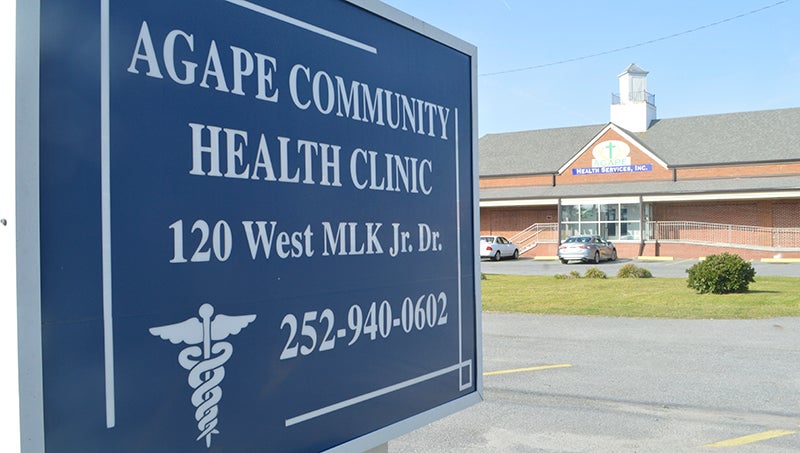Sound Rivers, schools team up for pollution project
Published 3:46 pm Monday, August 21, 2017

- ON THE BANKS: Matt Butler, Sound Rivers’ environmental projects manager, talks about how to improve the removal of pollutants from water in one of two detention ponds located on the Beaufort County Community College campus. (Vail Stewart Rumley/Daily News)
Stormwater engineers are helping three Beaufort County schools cut back on water pollution.
Beaufort County Community College, P.S. Jones Middle School and Washington High School are under currently under assessment, courtesy of a nearly $20,000 grant from the North Carolina Department of Environmental Quality — a project initiated by a partnership between the Mid-East Commission and the environmental advocacy nonprofit Sound Rivers.
What the N.C. State University engineers are looking for are ways to help slow and clean stormwater runoff from campuses into surrounding waterways, according to Matt Butler, Sound Rivers’ environmental projects manager.
“We’re looking at where the stormwater is going and looking areas where they can be improved,” Butler said.
Campuses have a lot of impervious surfaces — parking lots and buildings — so when it rains, the water collected has to go somewhere since it’s unable to soak into the ground. The studies will determine better ways to deal with that water, so that it will carry less nutrients and sediment by the time it flows into the Pamlico River and its tributaries.
Nutrients such as nitrogen and phosphorous found in fertilizer can cause excessive growth of algae in local waters; sediment can block sunlight and smother native aquatic plants with silt and dirt, Butler said. Both effects can damage the balance of the river’s ecosystem.
The ways to battle this are numerous, and some are already in place.
“All the campuses we looked at are doing a great job. We’re just looking at ways we can improve on that,” Butler said.
At BCCC, there is already a system of stormwater drains, as well as streams running through campus, that funnel stormwater into two detention ponds.
“We can adapt it so that they can treat stormwater better,” Butler said. “Because of the (detention ponds’) depth, they don’t remove nutrients that well. Wetland plants will help promote nutrient removal, and we can also build a more complex ecosystem with fish, dragonflies, butterflies—anything that will come with the plants.”
In addition to installing wetland plants around the edges of the detention ponds, planting native grasses on the banks of campus streambeds will cut back on erosion during heavy rains — less sediment will cloud the waterways, according to the Butler.
Butler said they hope to have the studies completed by mid-2018; after that, Sound Rivers will be working with the college to find opportunities to fund recommended projects. The ultimate goal is to get students involved in the process.
“The idea is that we can use this as a great education and outreach program for the schools —they can see it in action,” Butler said.
BCCC is on board: agribusiness and biology students will be incorporating projects into their coursework.
“We’re always looking for opportunities on campus to be innovative with our infrastructure to complement our curriculum,” said Jason Squires, director of campus operations. “This project will let us have smart and attractive ways to control our runoff.”
For Butler, the assessment, recommendations and future projects are part of Sound Rivers’ mission.
“Our goal is for fishable, swimmable, drinkable water — that’s the impetus behind this work,” Butler said.





